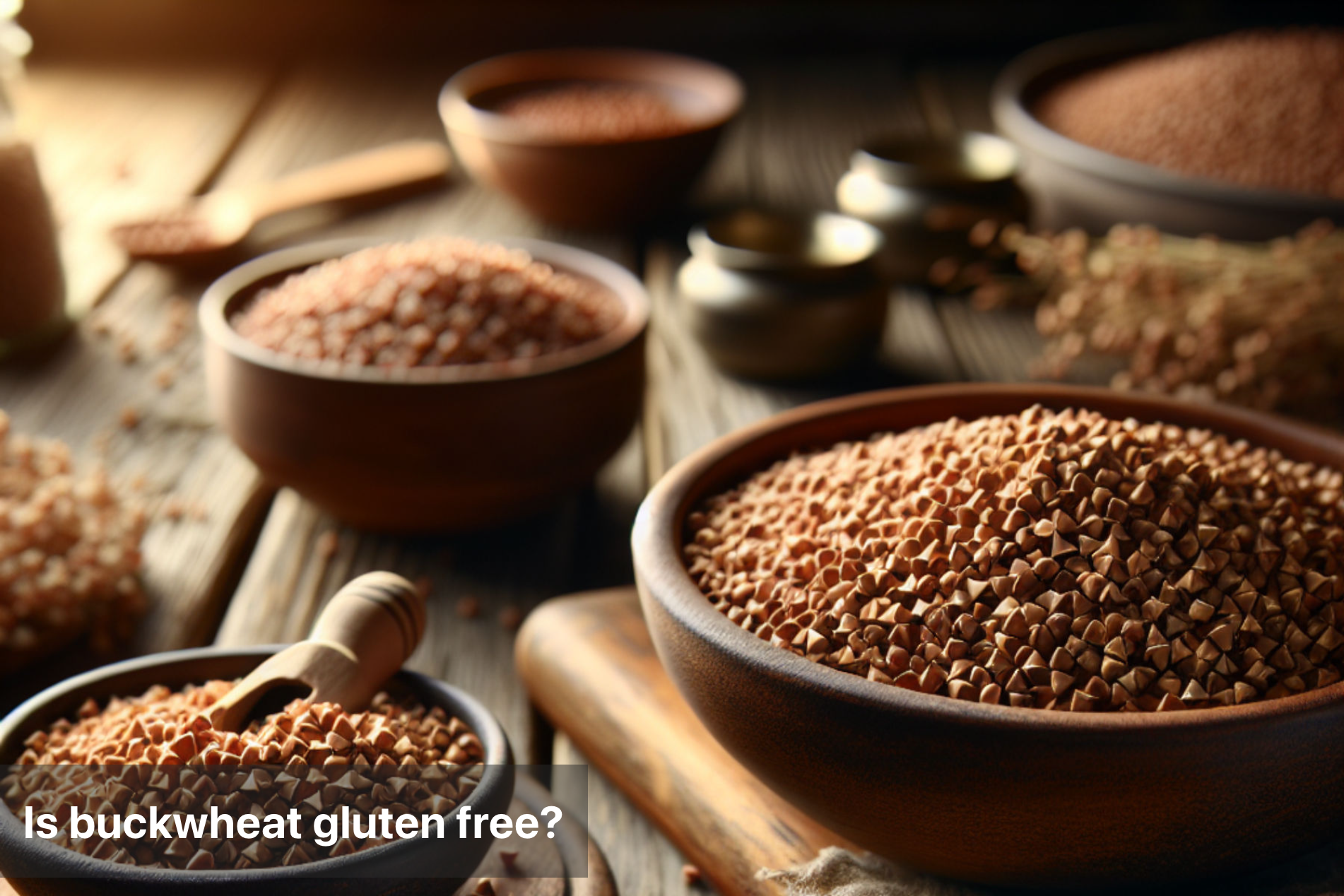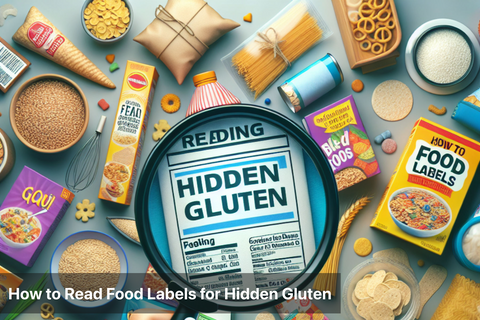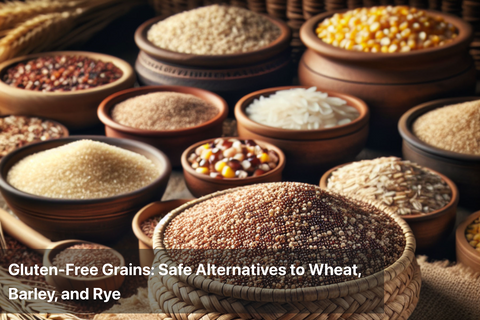
Is buckwheat gluten free?
Buckwheat, despite its name, is not a type of wheat, but rather a seed-like fruit related to rhubarb and sorrel. It has gained popularity as a nutritious gluten-free alternative, particularly for individuals with celiac disease or gluten sensitivity. People are increasingly turning to buckwheat due to its versatile nature and potential health benefits.
Incorporating buckwheat into your diet can offer a variety of culinary options. From using buckwheat flour in baking to enjoying buckwheat groats in salads or porridge, this nutrient-dense ingredient adds a nutty flavor to dishes. Furthermore, buckwheat is rich in essential nutrients like fiber, protein, and antioxidants, making it a valuable addition to a balanced diet.
The gluten-free status of buckwheat has sparked curiosity among consumers. While buckwheat itself does not contain gluten, there can be risks of cross-contamination during processing. Therefore, individuals with gluten sensitivities should opt for certified gluten-free buckwheat products to ensure they are safe to consume.
As interest in gluten-free diets continues to grow, understanding the role of buckwheat as a gluten-free option is crucial for those seeking alternative grains. By exploring the diverse uses and nutritional benefits of buckwheat, individuals can make informed choices that align with their dietary needs and preferences.

Buckwheat & Gluten
|
Nutrient |
Amount per 100g (Cooked) |
|
Calories |
92 kcal |
|
Protein |
3.4 g |
|
Gluten |
0 |
|
Carbohydrates |
20 g |
|
Dietary Fiber |
2.7 g |
|
Sugars |
0.8 g |
|
Fat |
0.6 g |
|
Saturated Fat |
0.1 g |
|
Unsaturated Fat |
0.5 g |
|
Calcium |
18 mg |
|
Iron |
0.9 mg |
|
Magnesium |
53 mg |
|
Phosphorus |
34 mg |
|
Potassium |
160 mg |
|
Zinc |
0.9 mg |
|
Folate (Vitamin B9) |
34 µg |
|
Vitamin B6 |
0.1 mg |
|
Vitamin C |
0 mg |
In its pure form, buckwheat does not contain gluten, making it a suitable choice for individuals with gluten sensitivities. However, the risk of cross-contamination during processing or packaging is crucial to consider. Cross-contamination can occur if buckwheat is processed in facilities that also handle gluten-containing grains, leading to traces of gluten in the final product. This is a concern for those with severe gluten allergies or celiac disease.
Labeling practices play a vital role in determining the gluten content of buckwheat products. Look for certifications like "Certified Gluten-Free" to ensure that the buckwheat item meets strict gluten-free standards. Reading ingredient lists carefully can also help identify any potential gluten sources that might have been added during processing.
While buckwheat is inherently gluten free, the risk of cross-contamination and the importance of accurate labeling highlight the need for diligence when choosing buckwheat products for a gluten-free diet.
How to Safely Incorporate Buckwheat into a Gluten-Free Diet
-
Choose Certified Gluten-Free Buckwheat Products: Look for products labeled as gluten-free to ensure they haven’t been contaminated with gluten during processing. Even though buckwheat itself is gluten-free, cross-contamination can occur if it's processed in facilities that handle gluten-containing grains.
-
Check for Cross-Contamination: If you’re buying raw buckwheat or buckwheat flour, make sure it’s processed in a dedicated gluten-free facility or has a gluten-free certification. This helps prevent cross-contamination.
-
Start with Small Amounts: If you're new to buckwheat, begin with small portions to see how your body reacts. While buckwheat is gluten-free, everyone’s digestive system is different, and it’s good to monitor for any adverse reactions.
-
Use Buckwheat in Diverse Recipes: Incorporate buckwheat into various recipes such as:
-
Buckwheat Pancakes or Waffles: Use buckwheat flour for a hearty breakfast.
-
Buckwheat Noodles: Enjoy soba noodles made from 100% buckwheat flour.
-
Buckwheat Flour in Baking: Substitute buckwheat flour in recipes for bread, muffins, and cookies.
-
Buckwheat Groats: Cook them as a side dish or use them in salads and soups.
-
-
Combine with Other Gluten-Free Grains: To balance nutrients and improve texture, consider mixing buckwheat with other gluten-free grains like quinoa, millet, or rice in your meals.
-
Consult a Dietitian: If you have specific dietary needs or health concerns, consulting a dietitian or nutritionist can help you incorporate buckwheat into your diet safely and effectively.

Buckwheat: Gluten-Free or Not?
We first touched upon the essence of buckwheat, emphasizing its versatility and numerous uses in cuisines worldwide. Moving on, we uncovered the significance of gluten and celiac disease, underlining the necessity for individuals with gluten sensitivities to avoid gluten-containing products.
The pivotal question of whether buckwheat is genuinely gluten-free was thoroughly examined. We explored the complexities of cross-contamination and the importance of reliable labeling practices in ensuring the gluten-free integrity of buckwheat products.
As we wrap up, a crucial takeaway emerges – while buckwheat itself is naturally gluten-free, precautions must be taken to avoid potential contamination during processing and packaging. By being vigilant in reading labels and sourcing from reputable providers, individuals can safely incorporate buckwheat into their gluten-free diets without compromising their health.
In essence, the gluten-free status of buckwheat is a nuanced subject that requires attention to detail and informed decision-making to enjoy its benefits confidently.
This Blog post is an initiative by Lo! Foods, to provide accurate and Nutritionist / Doctor approved information related to Health. Lo! Foods is India's leading brand for Everyday Functional Foods. Foods designed for specific Health conditions or Needs. Lo! Foods also runs India's largest range of Low Carb Healthy Cloud Kitchens, under the brand names of Lo!, ProteinChef, ATH (All Things Healthy) and DiabeSmart.















Leave a comment
Your email address will not be published.